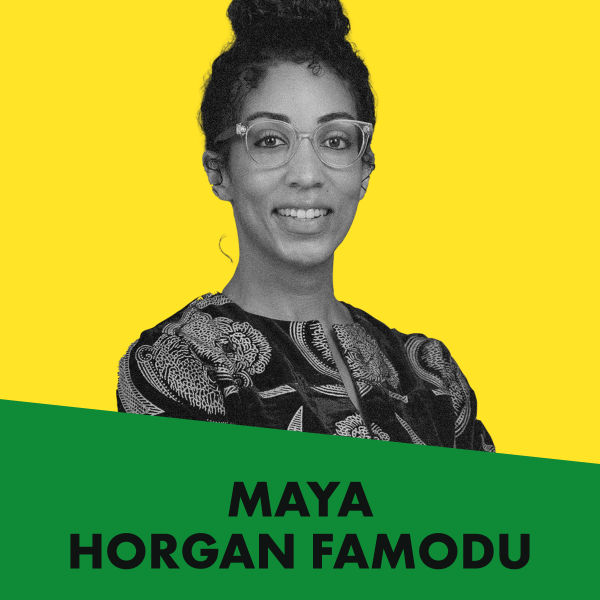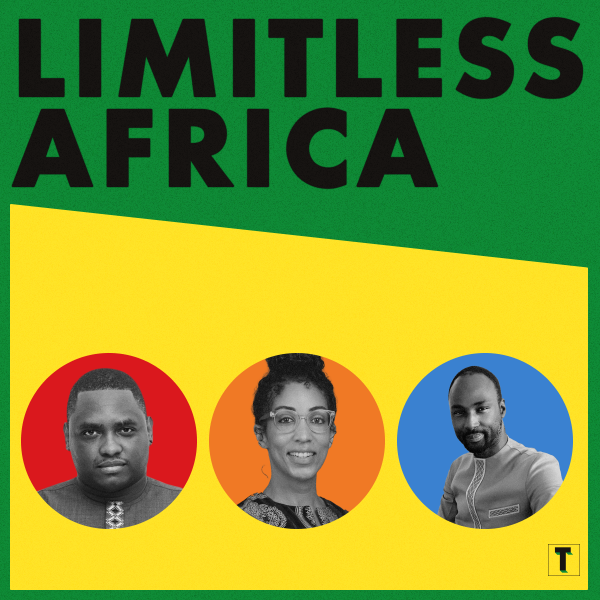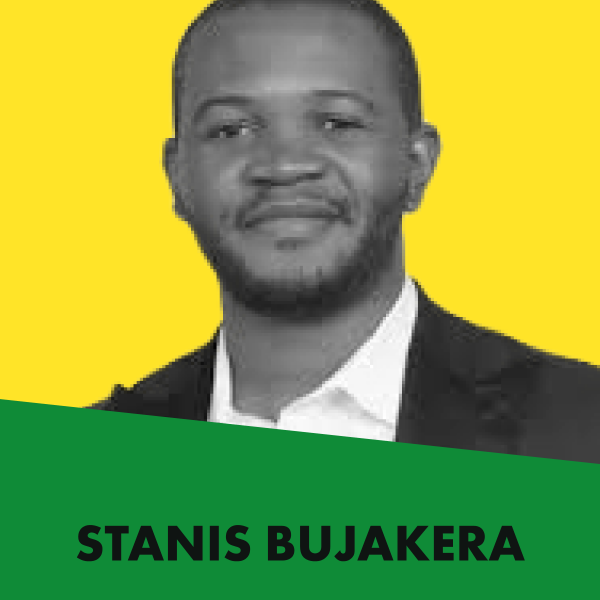Claude: In this episode we’re talking conflict and journalism
For decades, journalists have reported on poverty, famine and war in Africa. But the reporters I really pay attention to when it comes to these difficult topics are the African journalists. They really understand their communities and the context in which these terrible things happen.
Nowadays everyday Africans can access more information than ever before. But social media means that lies and fake news can spread faster, inflame tensions, and serve the interests of the powerful.
So the work that African journalists do – reporting facts and telling the truth – is ever more important.
Jeremias Langa is the new president of the Mozambican chapter of the press freedom association, Media Institute of Southern Africa. Our correspondent Jerry Muchanga spoke to him.
Jerry: Why the truth is so important when it comes to politics and governance?
Jeremias: Information is the basis of a Democracy.
We cannot assume that there is a democracy without there being information, and accurate information.
Nowadays because of fake news, journalism’s role has become relevant again. It is trusted to provide truthful information, of course. If a Journalist acts in the same way as those who disseminate fake news, he is ruining his reputation.
In the case of Mozambique we approved a law of right to information in 2014. Even though 10 years have passed, we continue to have many challenges, with many institutions still not making information available.
Jerry: Are there any other measures that you think the governments of various African countries should take?
Jeremias: I think the main measure that states should take is education. It is investment in education. Because in Mozambique, for example, we still have around 45% of the population who cannot read.
If a person already has difficulties understanding knowledge in general because they cannot read, they will have even more difficulties when it comes to understanding and acquiring digital skills.
So the main mission of States is to invest in knowledge in Education, and therefore, introduce digital skills, in schools.
Jerry: What barriers do journalists face in carrying out their work?
Jeremias: There are several barriers that journalists face on a daily basis, including access to information, that is to say relevant and complete information. And there are also political barriers. Our democratic regimes do not yet have solid foundations, and therefore we continue to have situations in which political regimes intimidate journalists and persecute them. This makes it difficult for these media professionals to practice their profession.
Jerry: And, as a journalist, can you get accurate information on social media?
Jeremias: As a journalist, social media is unfortunately still not a reliable source of information. Social networks are a space, let’s say, of broader democracy for citizens to be able to write freely.
What’s more, there is another negative side, which is that citizens, unlike a journalist, are not bound by an ethical or professional duty. They do not check in advance the veracity of what they are going to write or compare sources, as a media professional does.
Jerry: What are the harmful effects?
Jeremias: The harmful effects are degrading people’s integrity.
Everyone has the right to keep their private life private, but unfortunately on social media we have seen a lot of fake news about people’s lives, and those people haven’t been asked for a comment.
The other harmful effect has to do with spreading rumours and spreading information that is not true. In some countries this can cause social upheaval.
Claude: Rodriguez Katsuva is the co-founder of Congo Check, the first news website in the Democratic Republic of Congo that verifies news stories and flags up fake news. Our assistant producer Mafoya Glélé Kakaï spoke to him.
Mafoya: Hello Mr Rodriguez Katsuva, thank you for giving us the time, can you start by telling us about yourself?
OK, so my name is Rodriguez Katsuva, I’m a Congolese journalist. I’ve been a journalist since 2010. In 2018, two friends and I created Congo Check which is the leading fact-checking media platform in the Democratic Republic of Congo. Up until today it’s the only media platform in Francophone Africa to be recognised by the international network of fact checkers.
Nowadays, we know more about what is happening in Congo from the news. So I’d like to know how fake news can spread conflict?
For two and a half years we have been living through a conflict. The M23 rebellion has risen up and is gaining in strength and territories. And what one must remember is that the majority supports this rebellion. This rebellion is mostly from a certain tribe and a community and it wants to protect the interests of this community. In fact in this community they speak Kinyrwandan, live in the DRC and are Congolese. In any case they live over a few borders, given that Africa was divided, villages were split, some finding themselves in RDC, or in Burundi or in Rwanda even if they had originally been all part of the same village.
So, given that the rebellion is made up mostly of one community, all of the people from this community have been targeted and are victims of attacks. They have been stigmatized because of their faces, their expressions, because of the language they speak, and fake news has been a tool, and a diabolically efficient one, at spreading fake news which increases hate and lies which put people in danger. There have been dozens of people in the east of the DRC who have been killed because of what they look like.
Mafoya: How do you raise awareness about fake news?
We have a centre called the Academy for training and we have partnerships with french universities. And now we are negotiating partnerships with the UK and the USA to send journalists for training and to return with new skills.
We train journalists and we train the public too. We produce TV shows to educate people, we organise online campaigns, and we go on the ground, for example we go to markets too. And we teach people some basic steps – listen, think about news that you share on whatsapp groups, news that could be urgent or very urgent, and people are encouraging you to share it 2 times, 3 times, well think about your reaction – are you reacting emotionally or rationally? Ask yourself that. Because that’s how you share something that is not verified. Ask yourself that question. WHy does this person want me to share the news with as many people as possible?
We tell them to relax, to not worry, there will always be people who you’ll be the first to inform.
So don’t try and share a scoop.
And in any case, one must always think of solutions. As I said, going to the market, driving cars with speakers. Theatres are useful too. Jokes, humour, anything that works to spread the message, like telling people that the Bible says to turn your tongue seven times before speaking.
So look over an image ten times before sharing it for example. Or rest for two minutes before forwarding a message. We try and find simple ways to educate people and to make them hesitate and question things.
Claude: These journalists are doing incredibly important work. And let’s make their jobs easier: Don’t believe everything you read on social media. Choose trusted sources. And think before you share.
Carl Odera is an experienced Kenyan journalist who has reported from all over the continent including South Sudan. Here’s our conversation.
In reflecting fact that I asked you a question about the Wagner group being spotted in Sudan and and Zelensky being spotted perhaps with one of Sudan’s army chiefs. Do you think that there’s a lot of fake news affecting what is happening now?
Carl: Yes, there’s something called the massive Russian troll. They can roll out propaganda beyond what an ordinary person can actually comprehend. There’s so much out there that you hear people saying, when they play under trees, drinking tea, and you hear all these rumours fly.
There’s no official confirmation of such meetings, but they’ve been mentioned, making headlines in some of these native online media.
Claude: Well, knowing what we know now about the power of these Russian trolls. Do you think about your role as a journalist when you’re facing this disinformation machine and the power of these trolls?
Carl: So when I have an assignment, for example, like say, in a town on the border of Sudan and South Sudan, which is having huge numbers of refugees since the war began, and you speak to people, or just listening to people talking about the events that are happening.
These people are probably coming from online platforms and now telling stories. Or you see online people writing pieces of news or opinions that are laced with a lot of fake news and a lot of misinformation.
And sometimes you hear versions of this in a refuge camp or just a small town gathering of people, what we call the street parliament, where people argue and debate topical issues of the day, and you hear this, and they’re taking their gospel truth to a point that in some instances, these pronunciations cause a lot of mistrust among communities or they just create a kind of hysteria that affects people to see each other, their brothers, sisters and neighbours in a certain light.
And it, for example, in the case of South Sudan, during the conflict, there are all these South Sudanese celebrities and, you know, online figures that were have massive, huge following, and they would write something – that this community, is doing this to this community, they would just come up and create a narrative and run with it, and people follow them, and people make this, you know, comments and responses that just leaves you with your mouth wide open.
Claude: I get it. These are really tragic stories that you’re sharing with us, because if the truth doesn’t matter that anything goes you’re actually trying to unbiased in your reporting. And if you really try to look into the situation from an objective perspective, how do you think this conflict in Sudan will start to be resolved?
Carl: There’s only one way: talks.
They have to come to the table. Both sides should actually put the Sudanese people, you know, the lives of citizens should matter more than anything else at the moment, and the time is now, because the way things are going, it might take decades, it might take a long time to, even if peace came, to rebuild and actually rebuild trust of the citizens in any government.
Claude: These journalists are doing incredibly important work and let’s make their job easier: don’t believe everything you read on social media, choose trusted sources, and think before you share.









